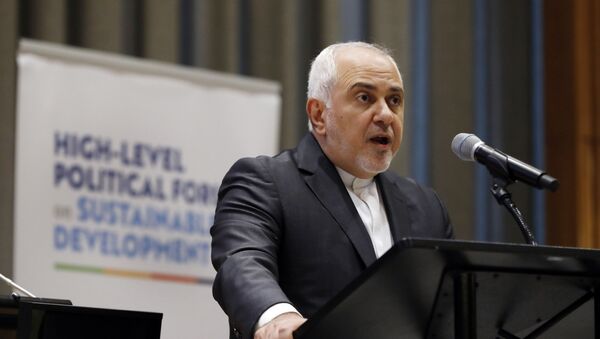"My country is at the forefront of resisting the US new unilateral tendencies, which includes outright economic terrorism. Our sincere efforts to address the concern about our nuclear peaceful program, though baseless, is one among many victims of new unilateralism. The US administration is defeating the Iran nuclear deal, despite the investment the whole world made to bring it about. And in the process it has not only breached the relevant [UN] Security Council resolution, but also ironically sanctioned those who try to abide by it", Zarif said.
He added that the new wave of Washington's extreme unilateral adventurism represents a major risk for all states and stressed the fundamental importance of maintaining a law-based international order.
Zarif is currently in the Venezuelan capital of Caracas to attend the ministerial meeting of the Coordinating Bureau of Non-Aligned Movement of states that are not part of any collective defence pact in the interest of a major power.
US #EconomicTerrorism is a global menace.
— Javad Zarif (@JZarif) July 20, 2019
I'm in Venezuela to attend #NAM meeting geared to forge global response to unilateralism.
In Iran’s engagement with the world, we neither call for the ouster of leaders, nor “bolster” them—decisions that are for the PEOPLE of a nation.
On 8 May 2018, US President Donald Trump unilaterally withdrew his country from the 2015 JCPOA and imposed several rounds of economic sanctions on Iran.
A year later, Tehran announced that it would partially suspend its obligations under the deal and gave the other signatories — France, Germany, the United Kingdom, Russia, China and the European Union — 60 days to save the accord by facilitating oil exports and trade with Iran. As the deadline expired, Iran said it would begin enriching uranium beyond the 3.67 percent level set in the JCPOA, warning that it would gradually abandon its nuclear agreements within the deal every 60 days.


